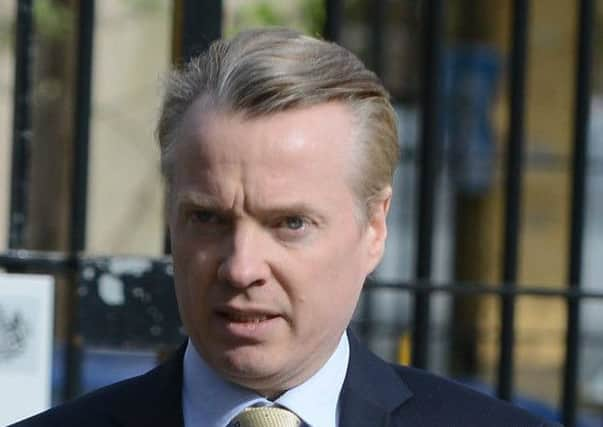Craig Whyte '˜did not guarantee' Rangers investment


A banker who worked with the club to manage its debt in the years leading up to the sale told the High Court in Glasgow that Whyte said he “intended” to put cash into the club.
An email was read to the court from March 2011 in which Ian Shanks told his boss in Lloyds Business Support Group that he did not want the issue to be a “stumbling block” to any agreement.
Advertisement
Hide AdAdvertisement
Hide AdMr Shanks said in the email: “If Craig doesn’t inject the cash he will be hounded by the fans and not (Sir David) Murray.”
In 2011, in the months before the takeover, the club owed Lloyds Banking Group around £23 million.
Mr Shanks, a relationship director within Lloyds, said the debt had reduced by around £10m since 2009 as the bank worked to “reduce its exposure” with both Rangers and the Murray Group.
Whyte, 46, is on trial at the High Court in Glasgow, where he denies acquiring the club fraudulently in May 2011.
Defence QC Donald Findlay suggested it was known there were no guarantees over future spending during the takeover, and that the situation was simply “I will if I can”.
The witness agreed.
Letters sent between then-Rangers chief executive Martin Bain and Mr Shanks were also read in court in which Mr Bain discussed the prospect of “reviewing the bank’s representation on (Rangers’) board”, referring to Murray Group directors Mike McGill and Donald Muir.
Mr Shanks said the two men were installed by the major shareholder, Murray Group, as part of a condition with the bank but that Lloyds was not controlling the club.
Referring to the letter, Mr Findlay said they were “clearly seen as the bank’s men”.
Mr Shanks replied: “That’s his view.”
Advertisement
Hide AdAdvertisement
Hide AdThe court heard that both Mr McGill and Mr Muir were “incentivised” to sell the club.
Asked who was in charge of the sale of Rangers, Mr Shanks said: “The Murray Group. There was strong involvement from the bank to get our debt repaid.”
Other email discussions between Mr Shanks and colleagues were read which discussed the potential of removing banking facilities to Rangers and changing the board in the run-up to the May 2011 takeover.
Mr Findlay asked if this was intended to threaten and put pressure on the board to approve the deal.
Mr Shanks replied: “Leverage”, adding that it was “negotiation tactics”.
Earlier, the witness had denied applying pressure over the sale.
Mr Shanks said he first became aware of Whyte’s offer for the club at the end of 2010.
When asked by Advocate Depute Alex Prentice QC if there was “something of substance” to the bid, the witness agreed.
Advertisement
Hide AdAdvertisement
Hide AdHe said he attended a meeting with Whyte’s representatives and was later sent details of a bid that agreed to pay off an £18 million loan to Lloyds and restructure other debt.
The bid was later revised twice, but Mr Shanks said the bank was “happy with the final bid, in the context of everything”.
Prosecutors allege Whyte pretended to Sir David Murray, and others, that funds were available to make all required payments to acquire a ‘’controlling and majority stake’’ in the club.
The Crown alleges Whyte had only £4 million available from two sources at the time but took out a £24 million loan from Ticketus against three years of future season ticket sales.
The court has heard the sale was eventually made to Whyte for £1 but came with obligations to pay an £18 million bank debt, a £2.8 million ‘’small tax case’’ bill, £1.7 million for stadium repairs, £5 million for players and £5 million in working capital.
The trial continues on Wednesday.
